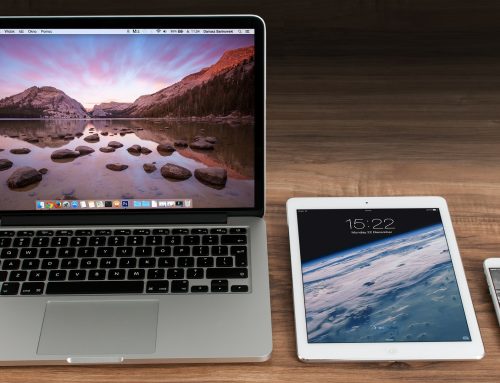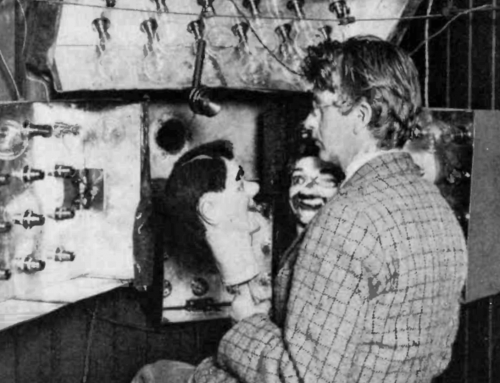The work we do at Fisher Audio Visual relies on our decades of experience in audiovisual technology. However, we use technology that has its origins in the distant past, with fascinating origins and strange stories that swirl around their invention. One such story is the first ever telephone call, which turned out was less an announcement of a discovery and more a cry for help from a scientist dealing with an acid-related mishap.
The invention of the telephone is something that is widely debated, with the commonly held belief that Alexander Graham Bell invented it being disputed. In terms of invention it is believed either Antonio Meucci or Elisha Grey were the first to come up with the idea for a telephone, although Bell would be the first person to make it work and ultimately would end up with the patent for it, although not without significant controversy, lawsuits, and a very bitter race to be first.
Racing to Make a Phone Call
Before we get to the first ever call, it is worth looking at the chase itself and its two major players. Alexander Graham Bell is the more famous of the two, to the point that “bell” has been used as a slang term for a telephone for the longest time. A teacher for the deaf, Bell was fascinated by elocution and sound and would work for most of his life to help deaf children communicate. It was during his tenure at the Boston University School of Oratory that he made the decision to focus on his sound experiments, with the ultimate goal to create a “harmonic telegraph” which could send multiple telegraph messages at once. To do this required the creation of a transmitter device, and the race to create this would lead to the creation of the telephone.
On the other hand, Elisha Grey was a prolific inventor in an age where that was an actual job title. Among his inventions include the music synthesiser, self-adjusting telegraph relays, a telautograph system that transmitted handwriting through telegraph systems and a very early and very primitive closed-circuit television system known as telephote.
Both had been working on transmitter devices that were intended to be used to create a harmonic telegraph, turning voice into a series of electrical pulses that could be sent across telegraph wires and reinterpreted into speech. Grey had by 1874 invented a harmonic telegraph that could transmit musical notes across large distances, but could not turn that into actual discernible speech. It turns out he was missing the point.
Grey tried to solve the problem using an on and off buzzer pulsing fast enough, which is a system that would not work until the age of digital sound over a century later. It was fine for transmitting musical notes but could not replicate the complex acoustics of voice. Grey didn’t know this initially but Bell did, given that phonetics was something of a speciality for him. It even ran in the family, with his father Alexander Melville Bell inventing a written phonetic language known as “visible speech”, which is an early predecessor to modern phonetic alphabets.
Ultimately, both Grey and Bell had figured out at a similar time the ability to transmit vocal patterns via the use of liquid transmitters, initially using mercury or water as the conductive liquid. Both rushed to get the patent, and both arrived the same day to the US patent office. A patent caveat by Grey’s lawyers demonstrating the idea with diagrams and a patent application filed by Bell arrived in the patent office within hours of each other, on 14th February 1876.
At the time, patent rules are given to the person who could prove they invented a patent first and not who filed the paperwork first, so what happened next is a question rife with debate. Grey accused Bell of stealing the idea for the liquid transmitter, and therefore the core idea for the telephone. There are all sorts of increasingly wild conspiracy theories, from bribes to drunken patent examiners, to corrupt lawyers manipulating the situation in Bell’s favour, getting him to drop the caveat and therefore any claim to have invented the telephone, meaning in practice Bell’s patent had no obstacle to being accepted.
It is difficult to distinguish signal from noise, but Bell’s early experiments show he knew about the principle behind water transmitters before Grey told him about it, and whilst their diagrams are very similar, they are set up differently and work somewhat differently.
Mr Watson, Come Here. I want to See You
This brings us to nearly a month later, on 10th March. Frantic experimentation by Bell and his assistant Thomas Watson was built on the principle of a liquid transmitter, leaving the spectre of this patent controversy hanging high. And it was on this day, three days after confirmation of his patent, that Bell spoke a sentence that has since become legendary.
“Mr Watson, come here. I want to see you.”
Why did he say this? It wasn’t just to show off his new invention but a cry for help. In Bell’s excitement at getting the final touches of the telephone working enough to make the call to Watson’s office next door, he accidentally spilt battery acid on himself. After sorting himself out, he asked Watson to confirm what he had said over the phone, and Watson repeated it clearly. Bell and Watson had done it. They had proven the principle of transmission of voice-over-wire and invented the practical telephone in the process. They had also, inadvertently proven the principle of Elisha Grey’s caveat, although how much Bell knew about it at the time is disputed.
After this, Bell and Watson tested through the night, taking turns reading books, singing, and closing with Bell’s belting rendition of God Save the Queen.
This would be the first call, and far from the last. The telephone is now ubiquitous, with all manner of advances in the technology appearing since, including conference spider phones, video conferencing and all manner of wireless networking, all of which can be linked back to a man who spilt acid on himself at the moment he became a fundamental part of audio history.
For more information on our audio products available to rent without any hassles or mishaps, contact Fisher Audio Visual today.




